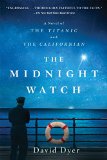Summary | Excerpt | Reviews | Beyond the book | Read-Alikes | Genres & Themes | Author Bio

Voyages of exploration, with their intoxicating potential for adventure, danger, and acts of bravery or cowardice, are fertile ground for historical novelists. One such expedition forms the backbone of the debut novel, Landfalls.
In the spring of 1785, when Europe was in the throes of the Enlightenment (see 'Beyond the Book'), at the port of Brest in Brittany in northwest France, an expeditionary voyage of two frigates, the Boussole and the Astrolabe, was about to set sail – the preparations were initially cloaked in secrecy lest the irksome English (who along with the Spanish and Portuguese had long dominated in maritime exploration) discover their lofty intentions.
The expedition was tasked with exploring the high seas to prospect for potential new French colonies, establish trading routes, and advance scientific knowledge. King Louis XVI also harbored hopes that his sailors would discover new lands and thereby emulate the recent achievements of the English explorer, Captain James Cook (who was the first recorded European to discover, among other places, the continent of Australia). However, the Lapérouse expedition, so called because its commander was Jean François de Galaup de Lapérouse, would never bring France the naval glory it craved and would instead, be remembered for its failure to return, vanishing in mysterious circumstances somewhere near the Solomon Islands, with no known survivors.
Especially given its ignominious demise, this tragedy provides ample fodder for Landfalls. The book's form, however, is a departure from the adventure-on-the-high-seas mold. Rather than re-imagining the long voyage, we encounter the expedition only at its various ports of call, the "landfalls" of the title. The fictionalized account of the journey from its beginnings in the port of Brest to the events that led it its cataclysmic ruin, unfolds in a series of writings – based on actual journal entries, letters, official reports and dispatches, eye witness accounts, even scientific monographs - by the expedition's crew members and savants.
By presenting the narrative from different perspectives, which often provide conflicting accounts of the numerous trials faced, the reader is slowly led to the realization that none of the chroniclers are entirely reliable. Indeed, in fiction (as in life), there is rarely such a thing as a disinterested observer; where there are differing points of view, there is seldom consensus.
By embracing this, and also by the occasional deployment of an omniscient narrator who seems to be speaking from beyond the grave (and who is given to using all-knowing statements such as "Lamanon [one of the expedition's men of science] has two years, three months, and fifteen days left to live. He does not know this, of course"), Williams cleverly imbues the story with a sense of ambiguity and confusion, not to mention eeriness. This is reminiscent of the fate of the Boussole and the Astrolabe for many years, before an Irish adventurer in 1826, discovered relics of the ships wrecked on the island of Vanikoro in the south Pacific, finally putting to rest the mystery surrounding the expedition. This haunting, elegiac quality, diffused throughout the novel, more than compensates for the occasional disjointedness and lack of cohesion in the narrative, which is an unavoidable by-product of engaging with the voyage through a number of different sources and only at intermittent ports of call, from Concepción on the coast of Chile, to Lituya Bay in Alaska, to Botany Bay in present-day Australia.
For all that, however, this novel is much more than simply a recounting of the tale of two French ships lost at sea over two centuries ago. Landfalls is also a very human story. Revealing her innate understanding of the human condition, Williams ensures many of mankind's less attractive qualities and foibles jostle for space alongside our more noble traits – the pride, arrogance and recklessness of the men aboard are juxtaposed with acts of astonishing bravery, empathy, loyalty, friendship and love. When, for example, an over-adventurous expedition, tasked with rowing to shore in an Alaskan Bay to find a freshwater source was capsized by a rough tide, with the unexpected loss of some twenty men, their fellow crew members spent weeks risking life and limb in treacherous waters looking for their comrades' bodies. The search was in vain, however, and the incident would haunt those left behind for the duration of the expedition.
The fact that the inherent tragic melancholy of the story is offset by an unexpected, irrepressible, sardonic humor which ripples just beneath the surface of the narrative, makes Landfalls a very accomplished debut novel.
![]() This review was originally published in The BookBrowse Review in September 2015, and has been updated for the
January 2017 edition.
Click here to go to this issue.
This review was originally published in The BookBrowse Review in September 2015, and has been updated for the
January 2017 edition.
Click here to go to this issue.

If you liked Landfalls, try these:

by Annie Proulx
Published 2017
From Annie Proulx - the Pulitzer Prize- and National Book Award - winning author of The Shipping News and Brokeback Mountain, comes her masterwork: an epic, dazzling, violent, magnificently dramatic novel about the taking down of the world's forests.

by David Dyer
Published 2017
David Dyer's The Midnight Watch is a powerful and dramatic debut novel - the result of many years of research in Liverpool, London, New York, and Boston, and informed by the author's own experiences as a ship's officer and a lawyer.
Your guide toexceptional books
BookBrowse seeks out and recommends the best in contemporary fiction and nonfiction—books that not only engage and entertain but also deepen our understanding of ourselves and the world around us.